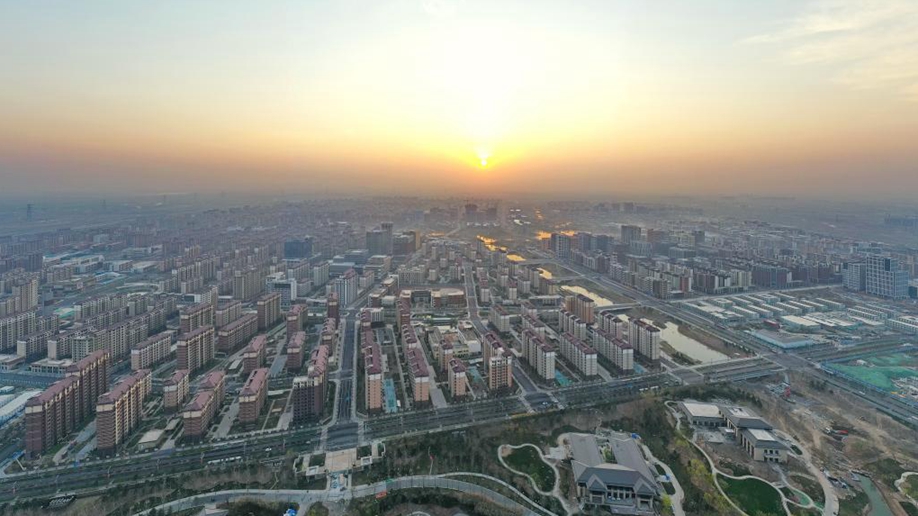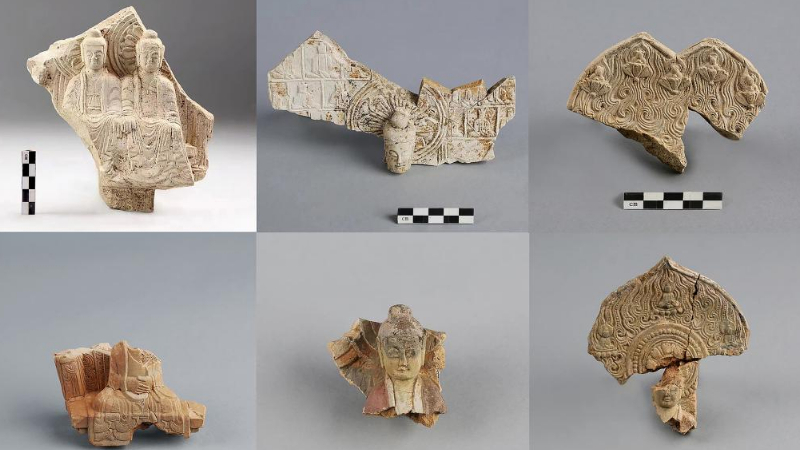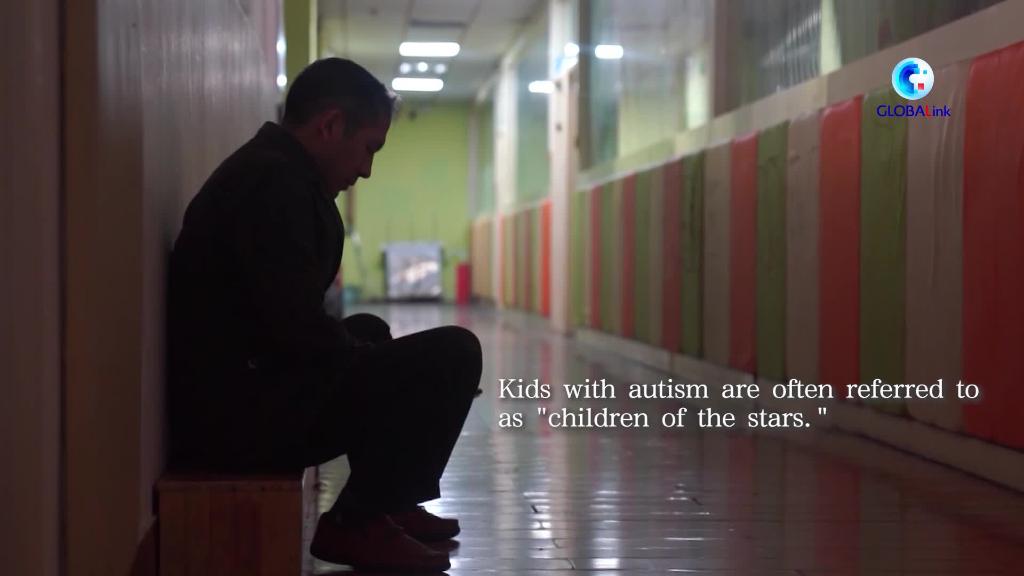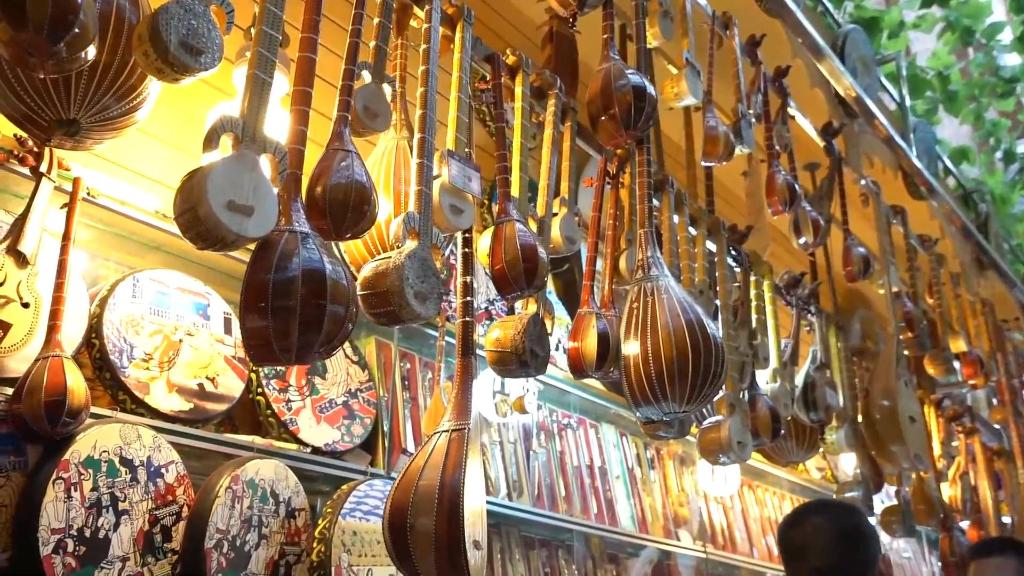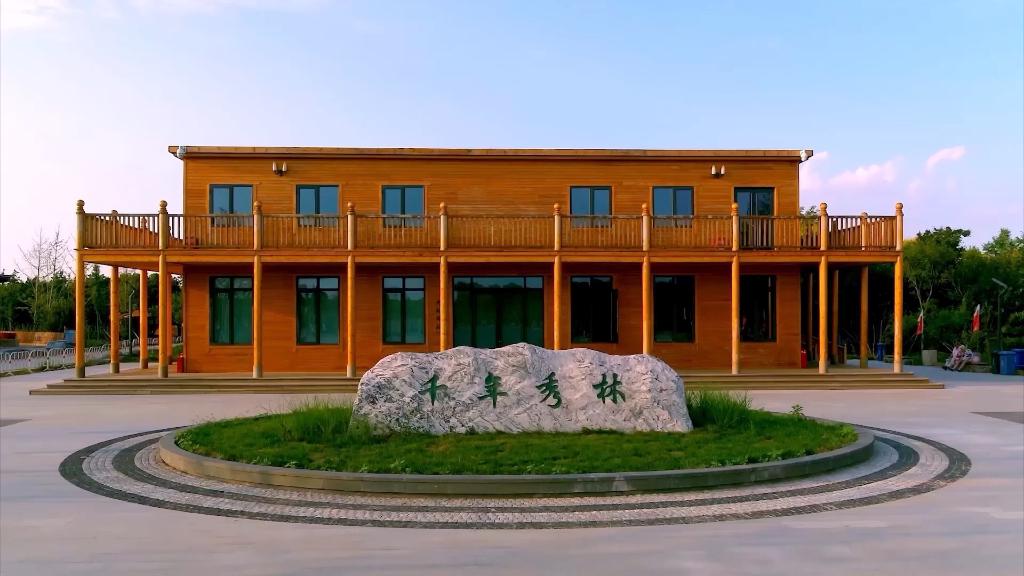
This aerial photo taken on March 13, 2023 shows vehicles at a terminal of Taicang Port, east China's Jiangsu Province. (Xinhua/Li Bo)
By Xinhua writers Liu Kang, Zhang Zhanpeng, Chen Shengwei
NANJING, April 3 (Xinhua) -- Donned in a light suit with a bright red flower badge on his chest, Hans Jochem Steim, the then CEO of Kern Liebers, a world-leading producer of car seat belt springs, went to the city of Taicang for the first time in 1993 to visit a factory.
Thanks to his astute business acumen, he quickly recognized the tremendous opportunity in this previously obscure city in eastern China. It was once viewed as a long shot and Kern Liebers' first investment here was quite tentative -- only six employees and a 400-square-meter rented factory were all.
However, located less than 50 km away from Shanghai, Taicang in Jiangsu Province boasts great market and logistics potential. The rare tranquility found amidst China's fast-paced modern life also enchanted Hans Jochem Steim, convincing him that the city could be the perfect location to focus on his career.
Starting in the 1990s, Taicang took 14 years to attract its first 100 German enterprises, but in merely three years the number grew from 300 to 400. Now, Taicang is widely recognized as the "home to German enterprises in China."
Hans Jochem Steim's courage also paid off, as the company's Taicang factory now generates an annual output value of approximately 1.5 billion yuan (about 219 million U.S. dollars).
With a population of nearly 1 million, almost the size of Germany's third largest city Munich, Taicang is now a big name in the foreign country.
Many find the widespread German proverb convincing enough in Taicang's Sino-German cooperation history: "Those who work alone are doing the addition; those who work together are adding the multiplication."
Currently, over 470 German enterprises have settled in Taicang and about one-tenth of German manufacturing companies in China have made investments in the city. It is often quipped that one could produce a car without leaving Taicang, as 70 percent of the necessary auto parts can be sourced from the city.
"Soft fire makes sweet malt" is a proverb that resonates with many Germans working in Taicang.
The leisurely pace of life in Taicang allows meticulous Germans to maintain their rigorous standards of product quality. At Brotecke, a German bakery in Taicang run by Erwin Gerber, work begins as early as 4 o'clock every morning to ensure that all procedures conform to the German baking style.
Despite the slow process, Gerber's bakery can meet all online orders and deliver them within 24 hours to other provinces, such as Liaoning in the northeast and Hainan in the south of China, which are located more than 1,000 km away from Taicang.
"I feel at home here. Taicang is so close to nature and parks can be seen everywhere," said Heino Buddenberg, CEO of Waelzholz, a German high-tech steel enterprise. The sight of vast farmlands in the vicinity when he first built a factory in Taicang about 18 years ago is still vivid in his memories.
The slow-paced life in Taicang is indicative of the city's dedication to building a solid foundation for development. Taicang once spent five years to secure funding for a German project worth only 1 million U.S. dollars, demonstrating its great patience, which aligns with the long-standing pursuit of stability among the Germans.
The city's government personnel involved in German investment promotion have barely changed over the years, according to the local organization department.
"The Taicang people often do things in a very German way, confirming every detail of the event with us five months in advance," said Stefan Geiger, executive general manager of Chinaforum Bayern.
Taicang also boasts agility in business applications. It just took the city 10 months to build a 34,000-square-meter high-standard plant for the project of the United Automotive Electronic Systems, a Sino-German joint venture.
When the supply chains of German enterprises were hindered by the sporadic COVID-19 outbreaks in 2022, local government staff were soon dispatched to guide the logistic trucks to the factories under closed-off management, ensuring their stable production that helped weather the challenges concertedly.
"Germans are somewhat people-driven," commented Richard Zhang, Chairman of the Board of Taicang Roundtable Office. "To some extent, their disposition resembles a fireplace. Though it needs a long time to warm the whole room, the fire will maintain enduring warmness once burning through the thick bricks."
Statistics show that over 90 percent of German companies in Taicang have increased their investment or expanded their production in the city during the past three decades.
The perfect match in personality and cooperation philosophy has strengthened the personal bond among people in Germany and Taicang in recent years, in addition to strengthened business interactions.
Last November, FC Bayern Munich built a football academy and a football culture experience center in Taicang. German beer festivals and other exchange activities between China and Germany such as marathon friendly matches and artist salon exhibitions have been held in Taicang for over 10 consecutive years.
"The ubiquitous German elements in Taicang make us feel homey," said Carsten Liske, CEO of Chiron Group, a German tycoon in machine tool manufacturing.
(Xinhua correspondents Yang Dingmiao and Yao Yulin also contributed to the story.)■


